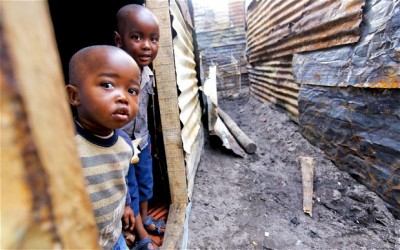
When it comes to assessing the costs, risks and benefits of environmental policy Bjørn Lomborg has always tried to provide balanced, detailed analysis supported by facts and evidence. The economic choices we make – about allocating scarce resources to unlimited wants – should – as Lomborg consistently points out – be made taking into account all of the costs weighed against properly measured benefits (see our post here).
When it comes to renewable energy policy, however, fundamental economic doctrine has been simply thrown to the wind.
The wind industry and its parasites tout spurious and unproven benefits in terms of CO2 emissions reductions – reductions which cannot and will never be delivered by a generation source delivered at crazy, random intervals that adds nothing to the entire Eastern Australian Grid hundreds of times each year – and which, therefore, requires 100% of its capacity to be backed up 100% of the time by fossil fuel sources (see our posts here and here).
Despite (or, rather, because of) its mad wind-rush Germany has seen CO2 emissions increase as it has had to build and re-commission coal fired plants to provide reliable base-load power to keep the grid up and running (see our posts here and here).
Not content with claiming fictional environmental benefits wind weasels dissemble and obfuscate on the true and hidden cost of wind power – only ever pointing to the wholesale price when it falls on those rare occasions when wind power output contributes something meaningful to the grid – which is usually at night-time, coinciding with the overnight plummet in demand, naturally resulting in a depressed wholesale price. The industry never discusses the costs that retailers pay through their Power Purchase Agreements – that guarantee minimum prices to wind power generators and which – at $90-120 per MW/h – are 3-4 times the cost of power from conventional sources. And it’s the price retailers pay under their PPAs and pass on to consumers that really matters to power punters.
Wherever there’s been any significant investment in wind power retail power prices have gone through the roof – witness Denmark, Germany and South Australia – which all jostle for the top spot on the table for the highest power prices in the world. See the table at page 11 in this paper: INTERNATIONAL-PRICE-COMPARISON-FOR-PUBLIC-RELEASE-19-MARCH-2012 – noting that the figures are from 2011 and SA’s retail power costs have risen significantly since then.
The impact of spiralling power prices hits the poorest the hardest and hits those in the developing world the hardest of all by depriving them of the opportunity of ever having cheap and reliable power. Bjørn spells it out in clear and simple terms in this piece published in The Spectator.
How green policies hurt the poor
The Spectator
Cold? Hungry? Short of cash? You can always eat carbon credits…
Bjørn Lomborg
5 April 2014
Cold? Hungry? Short of cash? You can always eat carbon credits…
Advocates against global warming often frame the issue in terms of helping the poor. ‘You’re right, people dying thanks to climate change is some way off…’ ran one fairly typical advert recently, ‘about 5,000 miles, give or take.’ Indeed, the United Nations agrees that, looking toward the future, climate change ‘harms the poor first and worst’. And the logic stacks up: the poorer you are, the less able you’ll be to afford the resources to adapt to a changing climate. However, climate policies also have a cost, and these predominantly hurt the poor. And if you really want to help the poor, there might be much more efficient ways to help than by cutting emissions.
Britain’s environmentalists proudly announce that households have reduced their electricity consumption by almost 10 per cent since 2005. They seldom mention that this is helped by a 50 per cent increase in electricity prices, in part to pay for Britain increasing its share of renewables from 1.8 per cent to 4.6 per cent. Such a price increase of course hits the poorest hardest. As with many green taxes, it does so because it taxes a basic necessity that makes up a larger proportion of a small budget. Not surprisingly, higher energy prices mean the poor are forced to reduce their electricity consumption far more than the richest, who haven’t reduced their electricity consumption at all.
Over the past five years, heating a home in the UK has become 63 per cent more expensive, while real wages have declined. Unsurprisingly, a greater number of poor households must spend more than 10 per cent of their income on energy, becoming what is known as energy poor. This category now covers some 17 per cent of all British households. Worse, because the elderly are typically poorer, energy poverty affects about a quarter of all households whose inhabitants are over 60. Deprived pensioners are spending their days riding heated buses to keep warm, while a third are leaving part of their homes cold.
Stories of fuel poverty frequently appear in the press. A 75-year-old widow, Rita Young, has been quoted saying: ‘I’ve worked all my life. It doesn’t feel fair. People my age don’t want to put hats and scarves on in their homes, but there’s nothing we can do about it. I sit in a blanket, put on a hat and sometimes go to bed at 7.30 in the evening.’ She joins almost a million other pensioners who are forced to stay in bed longer to keep warm because of rising fuel bills.
But things could be worse. In Germany green subsidies will cost €23.6 billion this year. Real household electricity prices have increased by 80 per cent since 2000, contributing to almost seven million households now living in energy poverty. Wealthy homeowners in Bavaria might feel good about installing inefficient solar panels on their roofs, but their lavish subsidies are essentially financed by poor tenants in the Ruhr paying higher electricity costs.
Climate policies take an even larger toll on people in the developing world. Almost three billion people rely on burning twigs and dung to cook and keep warm. This causes indoor air pollution, at the cost of 4.3 million lives a year, and creates the world’s biggest environmental problem. Access to cheap and plentiful electricity is one of the most effective ways out of poverty — curtailing indoor air pollution and allowing refrigeration to keep food from spoiling (and people from starving). Cheap electricity charges computers that connect the poor to the world. It powers agriculture and businesses that provide jobs and economic growth.
The rich world generates just 0.8 per cent of its energy from solar and wind, far from meeting even minimal demand. In fact, Germany will build ten new coal-fired power plants over the next two years to keep its own lights on.
Africa is the renewable utopia, getting 50 per cent of its energy from renewables — though nobody wants to emulate it. In 1971, China derived 40 per cent of its energy from renewables. Since then, it has powered its incredible growth almost exclusively on heavily polluting coal, lifting a historic 680 million people out of poverty. Today, China gets a trifling 0.23 per cent of its energy from unreliable wind and solar.
Yet most Westerners still want to focus on putting up more inefficient solar panels in the developing world. But this infatuation inflicts a real cost. A recent analysis from the Centre for Global Development shows that $10 billion invested in such renewables would help lift 20 million people in Africa out of poverty. It sounds impressive, until you learn that if this sum was spent on gas electrification it would lift 90 million people out of poverty. So in choosing to spend that $10 billion on renewables, we deliberately end up choosing to leave more than 70 million people in darkness and poverty.
In the West, we take our supply of electricity for granted. After a century, we’ve forgotten that plentiful, affordable and dependable energy is the lifeblood of modern civilisation and prosperity. Discussions about saving the world seldom acknowledge the 1.3 billion people living without any electricity whatsoever. Their problems seem otherworldly to us — and we neglect the fact that the same sort of access to cheap electricity would substantially improve their lives. When it comes to helping the world’s poor, a topic like climate change seems to interest the West far more than such mundane matters as helping them power their houses.
Dr Rowan Williams, the former Archbishop of Canterbury, wrote in the Sunday Telegraph last weekend about how the industrialised economies’ greenhouse emissions have wrecked the world. He urges us to cut fossil fuel-based pollution, to help the world’s poor. Sadly, it does not seem to occur to the well-meaning Dr Williams to ask whether we best help the poor by cutting carbon emissions — or by focusing on the provision of affordable food, medicine or energy. It seems not to occur to him that there is a trade-off.
So yes, climate change is an important problem. But presenting people with a one-sided, ineffective message helps no one. Addressing global warming effectively requires long-term innovation that makes green energy affordable to all. Wealthy western nations must step up investments into research and development in green energy technologies to ensure that cleaner energy eventually becomes so cheap that everyone, including developing countries, will use it. Until then, we need to remember to help the poor where it really matters.
The Spectator
Policies directed at “supporting” wind power involve the single largest government backed transfer of wealth from the poorest to the richest seen in recent history.
“Energy poverty” – the choice between heating and eating – is a recent and insidious phenomenon the consequence of runaway renewable energy policies. And it will only get worse – unless and until governments come to grip of the economic consequences of pouring hundreds of $billions at the wind industry which exists and can only ever survive with mandated taxpayer and/or power consumer subsidies.
Energy poverty is not unique to Germany or the Third World.
In Australia’s “wind power capital”, South Australia (population 1.6 million) over 50,000 homes have been disconnected because they can’t afford soaring power bills – with more being cut-off daily. These people have taken to lighting their homes with candles – and cooking on wood stoves and barbeques.
Societies are ultimately judged on how they treat the poorest and most vulnerable of their numbers. Nonsensical renewable policies are simply punishing the poor and will end up keeping millions in the developing world in a perpetual state of arrested economic development. And all for nothing.


3 thoughts on “Bjørn Lomborg: high cost renewables hit the poorest the hardest”